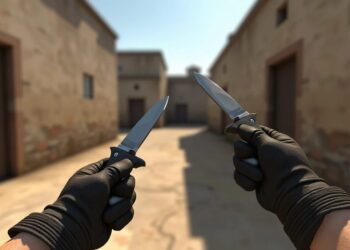The relationship between skill and chance in competitive and casino games has long intrigued players, analysts, and game designers. At first glance, these domains may seem worlds apart—one associated with fast-paced decision-making and practice, the other relying heavily on luck and the dice roll. However, a closer look reveals significant overlaps, with both types of games often blending elements of skill and chance to create engaging experiences.
The Balance of Skill and Chance in Casino Games
Casino games are traditionally seen as games of chance, where randomness dictates outcomes. Games like roulette, craps, and slot machines are classic examples where chance reigns supreme. These games operate through Random Number Generators (RNGs), producing unpredictable outcomes that give rise to the excitement and allure of uncertainty.
In slot machines, for instance, the outcome of a spin is decided by a random number generator every millisecond, ensuring that no pattern or player input can influence the result. This pure reliance on chance makes these games thrilling, as each outcome feels like a brush with fortune.
Yet, not all casino games are entirely dependent on chance. Games like poker and blackjack introduce elements of skill, where the player’s decision-making, strategy, and knowledge significantly impact the outcome.

In poker, bluffing, reading opponents, and making calculated moves can sway the odds in your favor, even if the distribution of cards is random. Blackjack, too, involves tactical choices such as when to hit or stand, and following basic strategies can significantly reduce the house edge, showing how a combination of skill and probability can shift dynamics.
Skill at the Core of Competitive Gaming
In contrast, competitive gaming—whether in eSports, online multiplayer arenas, or strategy-based games—relies overwhelmingly on skill. Games like League of Legends, Call of Duty, or Starcraft demand a mastery of mechanics, strategic depth, and quick decision-making.
Players must continually refine their skills through practice, like a chess grandmaster sharpening their strategies with every game. Here, victory is determined by a player’s ability to react swiftly, plan, and coordinate with teammates.
Competitive gaming, however, does have its flirtations with chance. In games like Fortnite or PUBG, for example, the “loot” system introduces random elements to each match, ensuring that no two games are alike. The unpredictability of weapon spawns and safe zones injects a small but impactful level of chance into these otherwise skill-centric experiences.
Even in games that seem purely skill-based, such as strategy games, there’s an element of unpredictability in player behavior or random in-game events that keep things fresh and engaging.
Blurring Boundaries: The Integration of Skill and Chance
The convergence of skill and chance in gaming has evolved in surprising ways. Casino games, traditionally dominated by chance, increasingly incorporate skill-based features to cater to a younger, tech-savvy audience. They still rely on Random Number Generators (RNGs) to ensure unpredictability, but newer versions, such as skill-based slots, allow players to influence certain outcomes through interactive mini-games.
It aligns casino gaming more closely with the immersive, interactive experiences found in video games. Despite this evolution, many casinos continue to offer traditional chance-based features, such as free spins, which are particularly popular in the finest online casinos in Canada, where players receive these spins based solely on chance. These spins preserve the excitement and unpredictability central to classic casino games.
Conversely, competitive gaming, typically skill-focused, adopts chance-based mechanics like loot boxes. These randomized reward systems, embedded within skill-driven environments, mirror slot machines’ structure by introducing unpredictability into an otherwise strategic experience.

The introduction of chance elements has generated controversy, particularly around loot boxes, with concerns about their potential to blur the lines between gaming and gambling, especially for younger audiences.
This gradual integration of skill into chance-driven games, and vice versa, is reshaping both industries, creating hybrid experiences that challenge long-standing definitions of what constitutes a game of skill or chance.
Conclusion
As both industries evolve, the boundaries between competitive gaming and casino games may become even more blurred. Casino operators are increasingly looking to tap into the younger demographic by gamifying their offerings, while competitive game developers are introducing chance-based elements to create new revenue streams. What was once a clear divide between skill and chance is now a spectrum, with games at various points.
Understanding the balance of skill and chance in this complex landscape isn’t just an academic exercise—it’s key to predicting industry trends, shaping game design, and navigating the ever-shifting regulatory environment. For players, it’s a reminder that no matter how much skill they bring to the table, chance will always have a seat—whether in the form of an RNG or the unpredictability of their opponent’s next move.


















